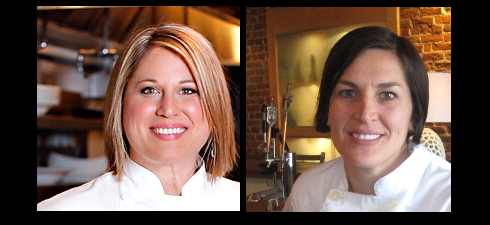
It is important to raise the issue of the role of women chefs in America’s restaurants over and over.
This time it is a Denver Post article about the dearth of women leading restaurants:
Despite a steady and sustained rise in the ranks of female culinary students, very few women end up in restaurant kitchens. Only 15 percent of “chefs and head cooks” nationwide are women, according to the Bureau of Labor Statistics.
Why?
The article quotes chefs Kate Horton and Elise Wiggins as well as a handful of male chefs who discuss the tough working conditions, language, and long hours.
The best quote is from Horton:
You need a tough skin. But I don’t think I ever thought I needed to develop a tough skin because I was a woman. I needed a tough skin because I was going to be a chef.
The article reminds us of how strong women who make it in the restaurant industry are, and how much further women can go. Click here to read the full article.
Photo gallery:
[cincopa AMFAplKqxIaE]

Did I miss your works cited entry? What article are you referring to that you copy and pasted from? Is there a website I can look up? You may want to take more care with this.
It is actually plagiarism to use quotes or info without properly crediting the source. I am doing a writing research paper on the effect of Women Chefs on the hospitality industry and was hoping to properly cite the article you reference repeatedly. I will see if I can find it, but just wanted to give you a heads up. Document your sources. An author should know that.
Bonne Journée!
HP
Yes, you missed the citations: hyperlinks to websites and their articles lie embedded in names cited. As you read through the article, you will see that the newspapers cited have hyperlinks which show up when your cursor passes over their names. This follows this magazine’s long-term publishing style.
In which case, some friendly advice back: please be more careful in your public communications. At least start with more polite queries. By starting out with warnings and advice to published journalists and authors about plagiarism and proper sourcing, you run the risk of sounding foolish, pompous, and/or undiplomatic — and certainly quick to jump the gun and (wrongly) assume the worst, as in this case.